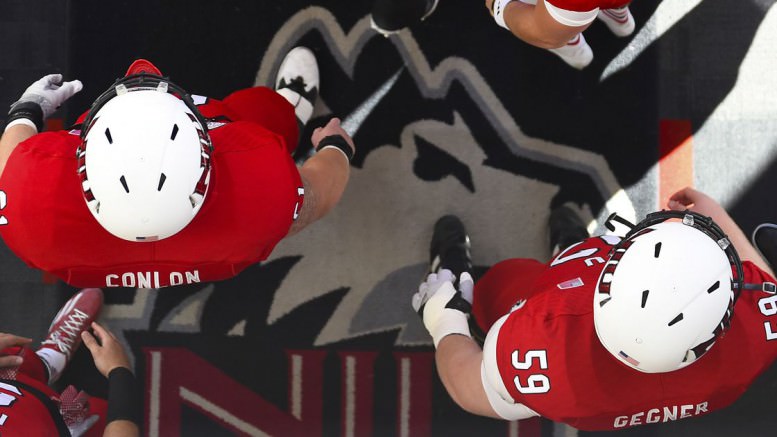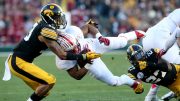Northern Illinois Huskies players walk onto the field prior to a game against Central Michigan Chippewas at Huskie Stadium.(Photo: Mike Dinovo, USA TODAY Sports)
64
CONNECTTWEET
8
LINKEDIN
3
COMMENTEMAILMORE
The Seattle-based law firm leading a variety of class-action lawsuits against the NCAA on Tuesday opened another front against the association, this time challenging the association’s rules that prevent some Division I football players from transferring to other schools without losing a season of athletics eligibility.
The new complaint was filed in federal court in Indianapolis, where the NCAA is headquartered. It is being pursued primarily by Hagens Berman Sobol Shapiro LLP on behalf of Peter Deppe, a punter who had planned to transfer from Northern Illinois to Iowa.
The suit alleges that Iowa accepted Deppe academically, but that Iowa’s athletics department declined to pursue a waiver that would have allowed Deppe to become eligible immediately and the NCAA would not consider a waiver request from Deppe. The suit alleges that Iowa then turned its attention toward another punter who would be eligible immediately without a waiver.
Deppe’s case is similar to another suit related to the NCAA’s transfer rules that the Hagens Berman firm is pursuing. But Deppe has remaining eligibility, and he was trying to transfer from one Football Bowl Subdivision school to another FBS school. In the other case about the transfer rules, the named plaintiff – Devin Pugh — was attempting to transfer from a Football Championship Subdivision school to an FBS school, and that plaintiff’s eligibility has expired. (Football players can transfer from an FBS school to an FCS school without having to sit out a year or lose a season of eligibility.)
As with yet another suit the Hagens Berman firm is pursuing against the NCAA, the Deppe case also seeks to overturn the association’s rules capping the number of football scholarships a Division I football team may award.
But the primary issue relates to the transfer rules.
“The NCAA’s limitation on the mobility of college athletes is patently unlawful,” the suit claims. “For a striking contrast, one can simply examine the unfettered mobility of the players’ coaches. Football coaches, including assistant coaches, are free to leave a school at any time they choose to take another job in the college or professional football ranks. This ability to better their own situation has allowed coaches to reap enormous financial benefits. …
“Players, however, suffer a severe penalty for transferring – the loss of a year of athletics eligibility. This can make them a very unattractive option for coaches who are under constant ‘win now’ pressure. The NCAA’s transfer rules restrain players’ ability to make the best choices for themselves, including ones based on financial considerations, academic considerations, athletics considerations, and personal circumstances.”
In a statement early Wednesday morning, the NCAA’s chief legal officer Donald Remy said: “The Deppe complaint repeats many of the same arguments made by the same law firm in other cases against the NCAA. Repeating allegations and legal theories does not make them true. As a result, the lawsuit should be dismissed.”
The Hagens Berman firm is overseeing the settlement of lawsuits against the NCAA, video game manufacturer EA Sports and the Collegiate Licensing Co., relating to the use of college athletes’ names and likenesses in video games. It is trying to gain a judge’s approval of a settlement with the NCAA in a case relating to concussions.
It also is involved with two cases challenging the NCAA’s limits on what athletes can receive while playing college sports – cases that have been granted class-action status for its pursuit of an injunction against the NCAA and major conferences. The firm is seeking class-action status in one of those two cases for a group of athletes it claims are entitled to damages based on the difference in value between a traditional scholarship covering tuition, fees, room, board and books and a newly allowed scholarship that covers the full cost of attending college.
In addition, the firm is pursuing a case that primarily targets the NCAA’s scholarship limits.
64
CONNECTTWEET
8
LINKEDIN
3
COMMENTEMAILMORE
Source: www.usatoday.com




